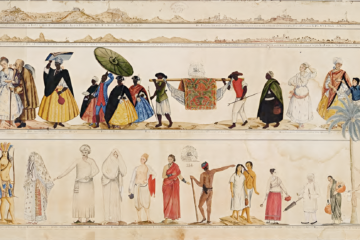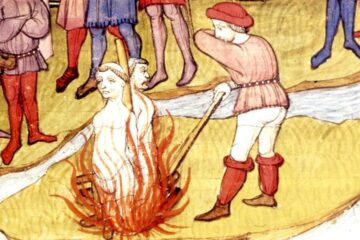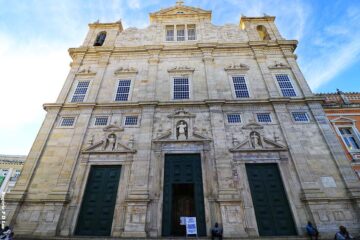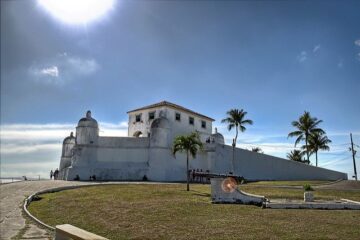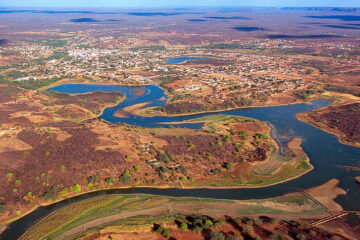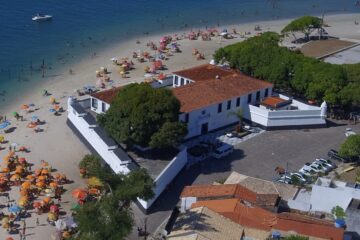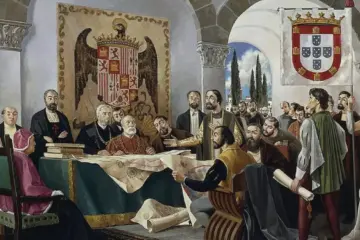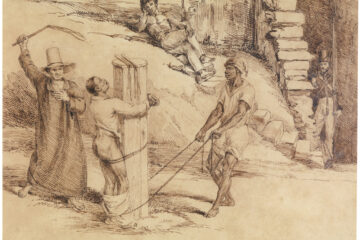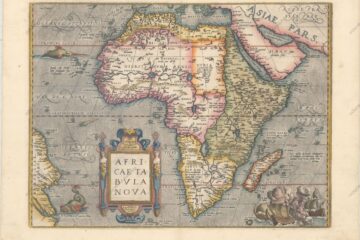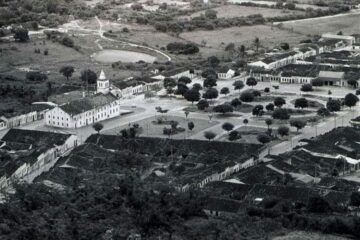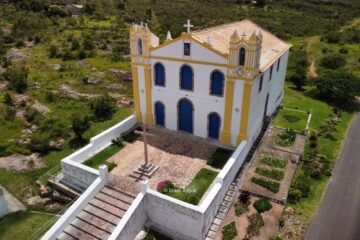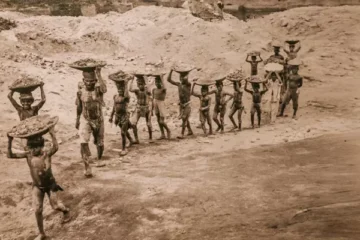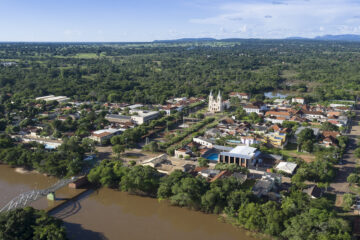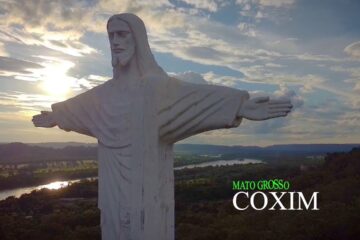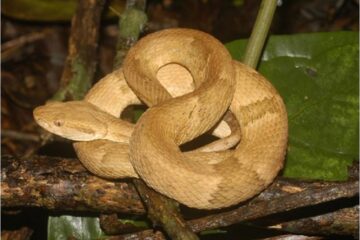The Route of the Sugar Mills and Maracatus takes visitors on a tour of the rural Zona da Mata Norte of Pernambuco, an area rich in engenhos and maracatus.
Journey to the origins
Travelling along the Route of the Sugar Mills and Maracatus in the Zona da Mata of Pernambuco is a return to the origins of the state, where you can appreciate the charm of local traditions.
Culture and Heritage
The old mills, the Big House and the Slave Quarters now house charming inns. Chapels, centuries-old churches, horse-riding and running water baths are all part of the scenery. Among sacred objects and antique furniture, the experience is a delight of rural life.

Sugar and its importance
As is well known, sugar has been a protagonist in the history of Pernambuco; the labour force that powered the mills was predominantly black. One of the most important cultural manifestations of this group is the maracatu, an event in which the kings of the community are crowned.
Intertwined traditions
It’s no surprise, then, that engenhos and maracatus are so intertwined, or that they have become elements of an important tourist route in Pernambuco.
Popularity in the Northern Mata Zone
Although sugar cultivation has spread along the entire coast of the state, it is in the towns of the Zona da Mata Norte – the coastal stretch between the capital Recife and the border with Paraíba – that maracatu groups have become most popular. For this reason, the Engenhos and Maracatus Route is travelled in this region.
Vicência: The land of mills
A sign at the entrance to the town informs us that Vicência, 90 kilometres from Recife, calls itself “the land of the mills”.
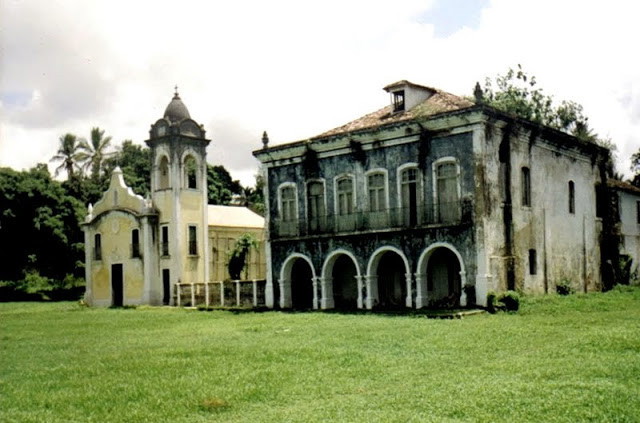
Characteristics of the Zona da Mata of Pernambuco
The Zona da Mata is a geographical and cultural region in the state of Pernambuco, Brazil.
This name is used to describe a specific area in the eastern part of the state, covering a strip of land between the Zona da Mata and the Agreste.
Geography and Climate
- Location: The Zona da Mata extends along the Atlantic coast of the state of Pernambuco, from the coast to the beginning of the Agreste region.
- Climate: The climate is humid tropical, with high temperatures and regular rainfall throughout the year. The region has dense vegetation, with areas of Atlantic forest and extensive sugar cane plantations.
In addition to its geographical and climatic characteristics, the Zona da Mata is rich in history and culture, being an important centre of agricultural production and a place of great importance for the culture of Pernambuco, including popular manifestations such as the Maracatu and the São João Festival.
The region is also known for its biodiversity, with several species of native flora and fauna.
What is Maracatu?
Maracatu is an Afro-Brazilian cultural manifestation that combines music, dance and parades, and is particularly associated with the city of Recife and the region of Pernambuco. It is a lively and traditional form of celebration with roots in colonial times, strongly influenced by the African cultures brought by the enslaved.
1. History and origins
- Origins: Maracatu has its origins in the colonial period, when African traditions began to mix with European and indigenous cultures in Brazil. It reflects the cultural heritage of enslaved Africans, especially those from the Congo and Angola regions.
- Development: Initially practised in rural areas, over the years maracatu has become a form of popular cultural expression in urban areas, especially in Recife and Olinda.
2. Types of maracatu
2.1 Maracatu de Baque Virado
- Description: This is the style best known and most associated with urban Carnival. It is characterised by a more elaborate parade structure and a more formal presentation.
- Features: Includes large percussion orchestras, dancers in extravagant costumes, and symbolic royalty (such as the King and Queen of Maracatu).
2.2 Rural Maracatu
- Description: Also known as Maracatu de São Benedito, it is mainly practiced in rural areas and small towns.
- Characteristics: Less formal than the Maracatu de Baque Virado, it is characterised by its lively performances, with an emphasis on tradition and community. It includes figures such as the “caboclos de lança” (spear-wielding extras) and the “afoxés” (dancing figures). It is made up of simple people, mainly rural workers, who, with the same hands that cut sugar cane, plough the land and carry weights, also embroider caboclo collars, cut costumes and decorate guides, beads and hats, dedicating themselves to the most valuable asset they possess: culture.
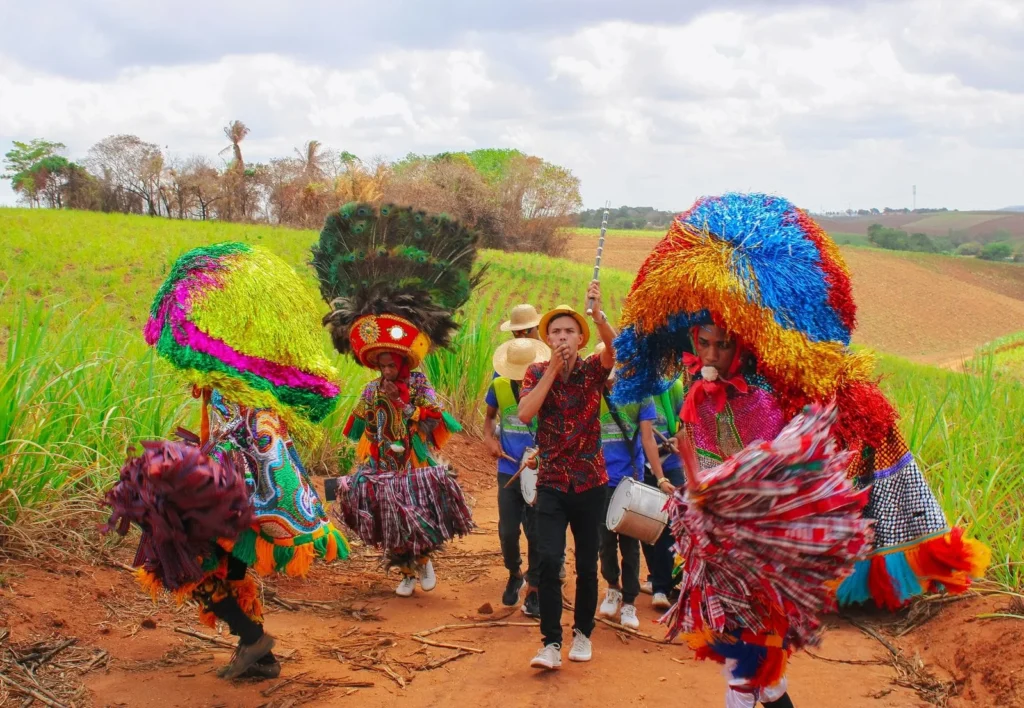
3. Music and dance
- Music: Maracatu music is influenced by African and Brazilian rhythms, with a strong emphasis on percussion. Typical instruments include the alfaia (drum), the gonguê (bell) and the caixa (small drum). The rhythms are intense and hypnotic, accompanied by chants and choirs.
- Dance: The dances are energetic and often follow the rhythm of the drums. The choreography can vary between the different forms of maracatu, but often includes synchronised steps and dramatic movements.
4. Traditions and Figuration
- Royalty: In Maracatu de Baque Virado, the presence of royal figures such as the King and Queen of Maracatu is a central element. They are accompanied by a court that includes the “Porta-Estandarte” and the “Cabeleireiro”, among others.
- Folkloric figures: In Maracatu Rural, figures such as “caboclos de lança” and “afoxés” are common. These figures play symbolic and ceremonial roles during performances.
5. Events and festivals
- Carnival: Maracatu is particularly associated with Carnival, one of Brazil’s biggest cultural events. During Carnival, Maracatu groups parade through the streets and take part in competitions and parties.
- Local Celebrations: In addition to Carnival, Maracatu is celebrated at other festivals and events throughout the year, reflecting its importance in local and regional culture.
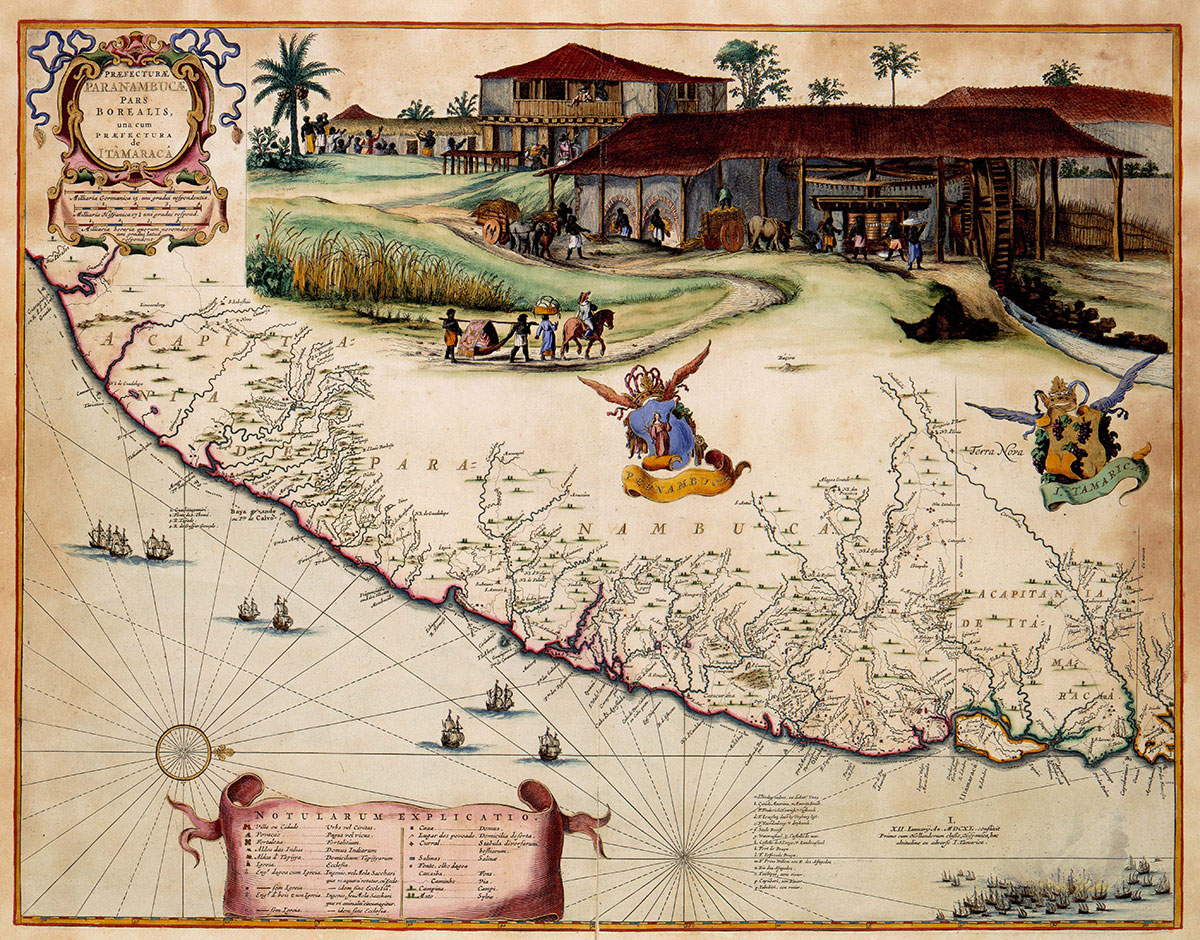
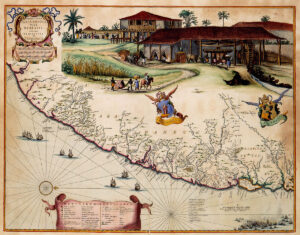
Rota dos Engenhos em Pernambuco12:52
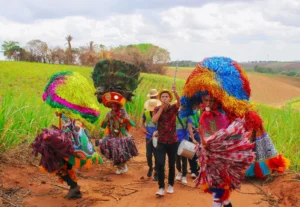
Grupos de Maracatu Rural02:10
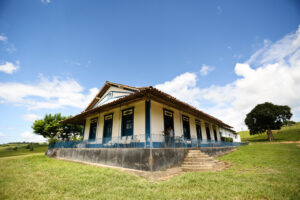
O ENGENHO JUNDIÁ DE VICÊNCIA PE
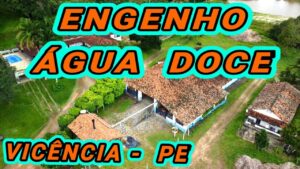
Engenho Água Doce em Vicencia PE
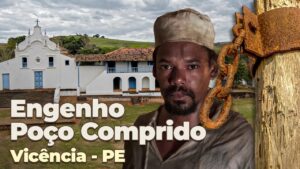
Engenho Poço Comprido em Vicencia PE
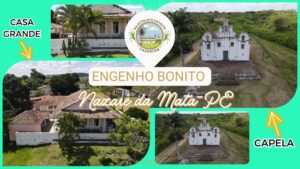
Engenho Bonito em Nazaré da Mata – PE
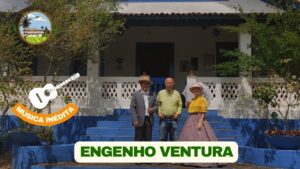
Engenho Ventura em Nazaré da Mata – PE
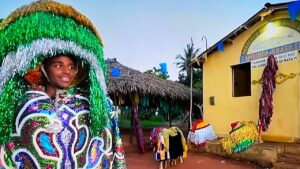
MARACATU CAMBINDA BRASILEIRA DO ENGENHO CUMBI EM NAZARÉ DA MATA-PE
Sugar Mills and Maracatus Route
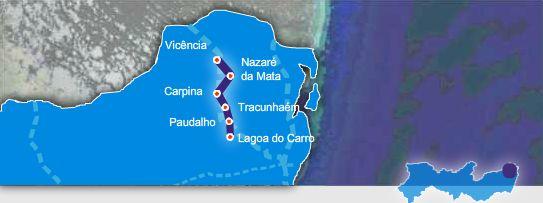
The Engenhos and Maracatus Route covers the municipalities of Paudalho, Carpina, Tracunhaém, Nazaré da Mata, Vicência and Lagoa do Carro.
1. Maracatu Route in the Zona da Mata of Pernambuco
Maracatu is a living cultural manifestation with roots in the Afro-Brazilian culture. In the Zona da Mata of Pernambuco, it reflects the local cultural heritage.
1.1 Zona da Mata Sul PE
In São Benedito do Sul and other municipalities, Maracatu Rural is celebrated in festivals, especially during Carnival.
1.2 Zona da Mata Norte PE
In Carpina and other cities, the tradition of Maracatu is strong, with events throughout the year. Nazaré da Mata is known for its rich cultural tradition and the practice of rural maracatu, with an emphasis on dance and music.
2. The Sugar Mill Route in the Zona da Mata, North of the State of Pernambuco
Sugar mills are agro-industrial production units typical of colonial exploitation. They were fundamental to the production of sugar between the 16th and 18th centuries.
Here are some of the best preserved mills in the region.
Vicência: The land of mills
- Engenho Jundiá: Founded in 1817, it has a museum with over 120 years of history and offers ecotourism activities.
- Engenho Água Doce: Produces artisanal cachaça, respecting the tradition of the Andrade Lima family.
- Engenho Iguape: It stands out for its rural tourism, preserving the originality of the mill.
- Engenho Poço Comprido: Listed as a museum, it is the only remaining 18th century mill in Pernambuco, ideal for educational tourism.
Nazaré da Mata – PE
- Engenho Bonito: A chapel declared a National Monument for its cultural importance, it is an example of 18th-century rural architecture.
- Engenho Ventura: Represents the history of sugar cane, currently with a hostel structure.
- Engenho Santa Fé: Transformed into a hostel, it offers rural tourism.
- Engenho Cueirinha: Involves visitors in the daily life of the countryside, with various rural activities.
- Engenho Cumbe: Home to the Cambinda Brasileira Maracatu, founded in 1918, which organises embroidery workshops.
These routes not only preserve culture and history, but also promote rural tourism in the region.
This post is also on:
![]() Português
Português ![]() English
English ![]() Deutsch
Deutsch ![]() Español
Español ![]() Français
Français


